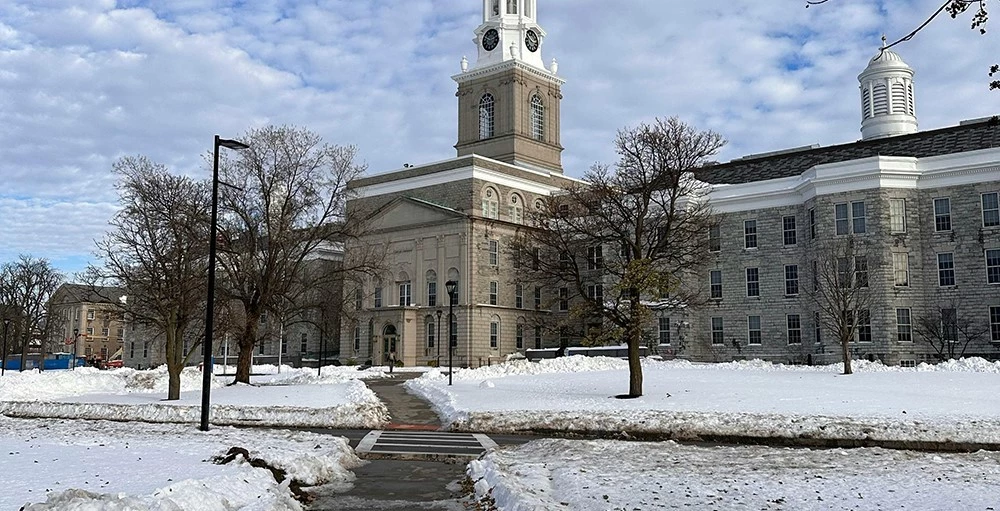The pandemic changed everything about the college experience, from where students learned to how they studied and socialized.
For these young adults, COVID also increased their financial stress, which has led to a decrease in mental wellbeing.
A recent survey conducted by Harris Poll for the American Institute of CPAs (AICPA)1 found that a majority of people experienced some financial stress due to COVID, but those between 18 and 34 had the most significant difficulties.
This finding makes sense because, even though they don’t have a lot of money to manage, they have little experience dealing with economic hardships and low levels of financial literacy.
Unlike those who have been through recessions and depressions, young adults haven’t learned how to cope with the effects of something as large as a pandemic.
Related article: Financial Literacy Becomes One of the Most Desired College Student Programs for 2021
The Numbers Tell a Story
The study surveyed 2,040 Americans over 18 years old. The findings show that financial stress due to COVID ran rampant throughout the population.
However, Americans over 65 were spared, with only one in four feeling some level of financial stress, while the average was almost six in 10.
On the other hand, 75 percent of those between 18 and 34 experienced stress. That’s a 50 percent increase over their parents and grandparents.
Unfortunately, this stress was the impetus for an increase in mental health issues.
Mental Health Issues
The link between mental health and financial stress has been well-documented.
For instance, The National College Health Assessment2 found that students experiencing financial stress were more likely to experience:
- Sleep problems
- Hopelessness
- Feelings of being overwhelmed
- Mental exhaustion
- Sadness and depression
- Anxiety
- Lack of energy
Financially distraught students were also more likely to abuse alcohol and drugs.
The AICPA findings are similar. For students between the ages of 18 and 34, nine out of 10 said the financial strain of COVID has had a negative impact on their mental health. Six out of 10 find that impact to be moderate or major.
Additionally, nine out of 10 young adults see that financial stress impacting their daily lives – more than the survey average and far more than those over 64:
- Sadness: 52 percent (48 percent overall, 31 percent older)
- Frustration: 49 percent (50 percent overall, 40 percent older)
- Trouble Sleeping: 48 percent (47 percent overall, 41 percent older)
- Uninterested in Hobbies: 45 percent (39 percent overall, data not provided for older adults)
- Changes in eating patterns: 44 percent (34 percent overall, data not provided for older adults)
Student Financial Stress Matters
Institutes of higher education should find this study troubling because financially stressed students affect a college’s bottom line.
Studies show that financially stressed students are more likely to:
- Get poor grades
- Neglect studies
- Drop classes
- Reduce from full time to part-time
- Drop out of school
Related whitepaper: Diplomas, Debt, and Default
Additionally, the most recent College Savings Foundation survey3 found that financial stress due to COVID has impacted high school graduates and their plans for attending school.
Only one in 10 graduates did not change their higher education plans. The other students are choosing to:
- take a gap year (8 percent)
- go to work (12 percent)
- change their college of choice (15 percent)
- go to a career and technical school (16 percent)
- go through an apprenticeship program (17 percent), or
- go to community college (21 percent).
Such numbers come at a cost for a university’s bottom line.
However, there is a solution – offer a financial wellness program to students.
Providing this resource reduces financial stress by providing the knowledge, skills, and tools needed to make appropriate financial decisions and create healthy financial habits.
Related article: Is College Success Correlated With Financial Wellness?
1 - https://www.businesswire.com/news/home/20210427005078/en/Younger-Americans-Bearing-the-Brunt-of-Pandemic-Financial-Stress-AICPA-Survey
2 - https://www.acha.org/documents/ncha/NCHA-II_SPRING_2019_US_REFERENCE_GROUP_EXECUTIVE_SUMMARY.pdf
3 - https://www.collegesavingsfoundation.org/press-releases/college-savings-foundation-survey-of-high-school-students-finds-covid-changes-higher-education-plans-and-financing/








